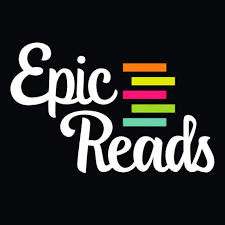Be it tweets, blog posts, or marketing materials, content produced by book publishers is traditionally about the books they publish. But that’s not always the case. Some publishers are hosting blogs with “publisher agnostic” content, meaning the site will feature books and authors they don’t publish. In fact, some of these websites all but obscure the fact that they’re hosted by a major publisher, which raises a question: why? Why promote books and authors they don’t publish? And why are publishers keeping their name off of the content they’re publishing online? Each of the three people interviewed said, “A rising tide lifts all boats,” a comforting and fitting aphorism that answers a question that they must be asked often.
Before looking at today’s digital landscape of publishers sharing books they don’t publish, let’s go back to 1984 when a Random House sales rep, Carl Lennertz, wrote what he called “The Random Report.” It was a newsletter that went out to bookstores promoting Random House’s forthcoming titles and whatever promising titles were coming from the competition, as well as a few personal notes. Highlighting books from publishers other than Random House made him a favorite among independent bookstores, — and, of course, the publishers whose books he promoted.
Lennertz, now the Executive Director of The Children’s Book Circle, took his newsletter online after the advent of digital; soon after he went on to start what is now IndieBound. Perhaps the first publisher to talk up books that weren’t their own online was Tor, which launched Tor.com in 2008. The site’s Associate Publisher, Irene Gallo, describes it as a three-pronged operation: a daily blog about all things science fiction and fantasy-related, a community of readers, and a publisher. The key here is that they cover all things science fiction- and fantasy-related, not just related to or about books published by Tor or Tor.com.
Tor.com isn’t alone. Penguin Random House has a group of sites that publishes content not exclusively about their own books, including Suvudu, also a sci-fi and fantasy site; Signature, which is focused on current events and the news; and Hazlitt, a site simply focused on “the best stories.”
And then there is a publisher-hosted site that falls somewhere in the middle: Epic Reads. Epic Reads is an online community and website for YA fans. Though it’s not immediately obvious, this is a HarperCollins site, which readers can discern from a HarperCollins copyright down at the bottom of the webpage. The only books sold on their site are published by HarperCollins, but all of the site’s original content is publisher agnostic.
Margot Wood, the voice (and often the face) of Epic Reads agreed with the “rising tide” sentiment: “We already have enough to compete with as an industry right now, so if this [sharing content that includes non-Harper authors] means more teens might get into reading, then I say the more the merrier. I also think this means that the publishing industry is finally catching up with the rest of the digital world.”
 Another purpose of these publisher agnostic sites is to enhance ongoing online conversation with books. Joseph Muscolino, Senior Manager, Digital Content for Penguin Random House agrees: “One of the main goals of Signature is to contextualize the news with book recommendations. It’s a bit…like saying ‘Here are books that give you a 360-degree look at this subject if you want to dive deeper.’” Under Signature’s News tab, one can find articles about Harley Quinn, forthcoming movies, politics, the Olympics, and more. None of these points directly to a book; they’re just adding to conversations happening in and around the news and current events.
Another purpose of these publisher agnostic sites is to enhance ongoing online conversation with books. Joseph Muscolino, Senior Manager, Digital Content for Penguin Random House agrees: “One of the main goals of Signature is to contextualize the news with book recommendations. It’s a bit…like saying ‘Here are books that give you a 360-degree look at this subject if you want to dive deeper.’” Under Signature’s News tab, one can find articles about Harley Quinn, forthcoming movies, politics, the Olympics, and more. None of these points directly to a book; they’re just adding to conversations happening in and around the news and current events.
Epic Reads and Tor.com add to ongoing conversations in a more casual way. Take, for instance, a recent article on Epic Reads: YA Authors We Desperately Need
add to ongoing conversations in a more casual way. Take, for instance, a recent article on Epic Reads: YA Authors We Desperately Need
Another Book From. Sure, there are plenty of HarperCollins authors featured in this post, but among them are some YA favorites like Stephen Chbosky (published by MTV Books), John Green (published by Dutton), and Kristin Cashore (published by Dial). Similarly, Tor.com regularly features publishing news – for instance, an article about a new series from Stephen R. Donaldson being picked up by Berkley, and a conversation with Drew Magary about his newest book, The Hike, published by Viking. The goal here seems to be fostering discussion about books, no matter who published them.
Throwing books into the mix of current online chatter continues in the tradition of that rising tide. Muscolino goes on: “The landscape of the book industry has seen a bunch of disruption in recent years and as physical shelf space shrinks, book discoverability becomes a challenge. What’s good for the industry is good for us.” But how, exactly? Muscolino says, “Book publishing is unique that there is very little association between book sales and brand affiliation. Practically no one I know buys a book because of the publisher behind it.” Fierce brand loyalty isn’t a phenomenon in book publishing. Given that logic, there’s little harm in giving space online to a book published by someone else.
Are readers paying attention to these sites? A look at their respective social media followings suggests yes. Tor.com’s Twitter boasts over 50,000 followers, Epic Reads some 73,000+, and Signature has close to 10,000 after launching in 2015. Tor.com’s blog posts have lots of chatter in their comments sections, and Signature has over 100,000 Facebook fans. Further, Epic Reads also has over 100,000 subscribers to their YouTube channel and 330,000 Instagram followers. And true to the nature of their main sites, these social media spaces feature articles from many different content producers. Not only are people tuning in to these sites, the sites are rising to meet readers and fans where they like to spend time online.
Talking about other books also shows an understanding of readers and fans. Gallo says that when the Tor founders and she were creating Tor.com’s mission, they kept coming back to the word “genuine.” “We never wanted to hide who we were – hence the obvious name Tor.com – but we also wanted to talk to people about books as fans, not just as customers. We knew that would mean occasionally publishing negative reviews of our own books, but also getting excited about and raving about competitors’ books, always keeping focus on the books themselves,” she says. Under this setup, Tor.com’s writers and editors get to be fans as well as readers and share their excitement about new books coming from other publishers, just as users of the site are already doing.
It seems that publishers talking about what other publishers are doing is a way to appreciate their work as peers, not as competition. Gallo doesn’t like the term “publisher agnostic.” She prefers “publisher neutral.” “We believe other publishers exist, [and] we just don’t believe we need to leave them out of the conversation,” she says.





